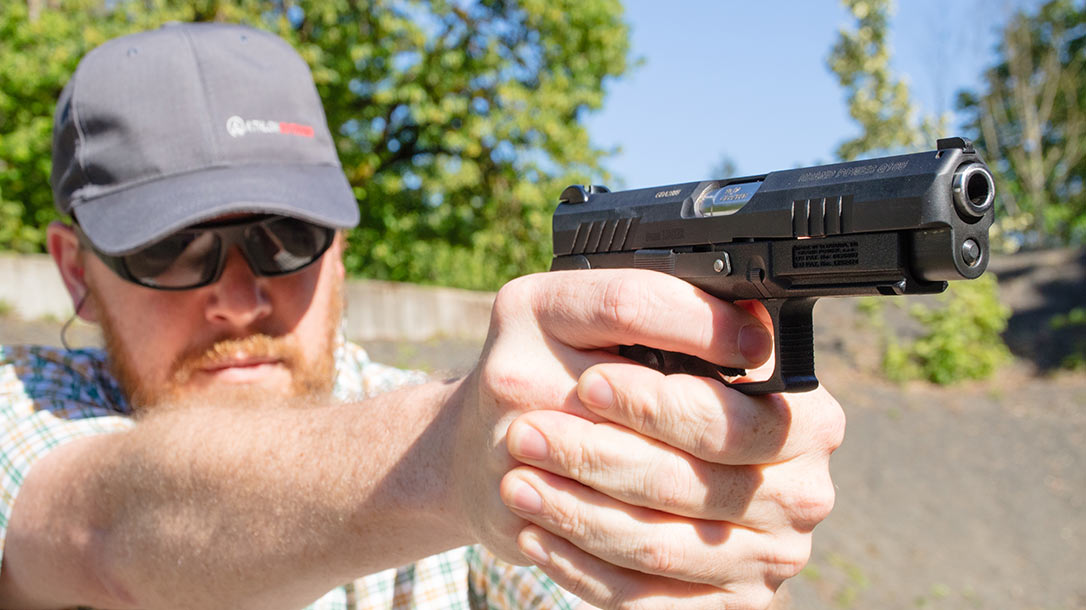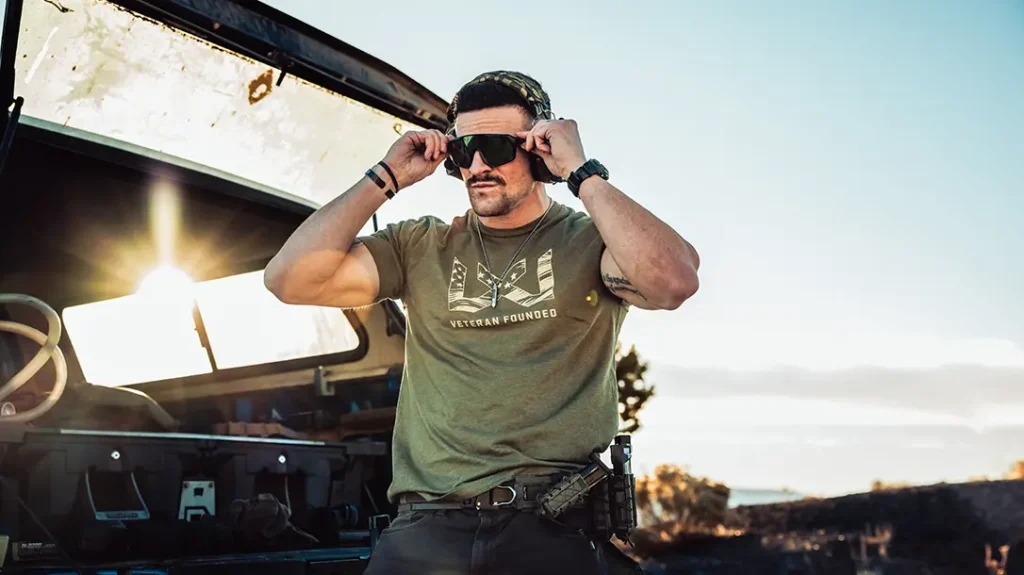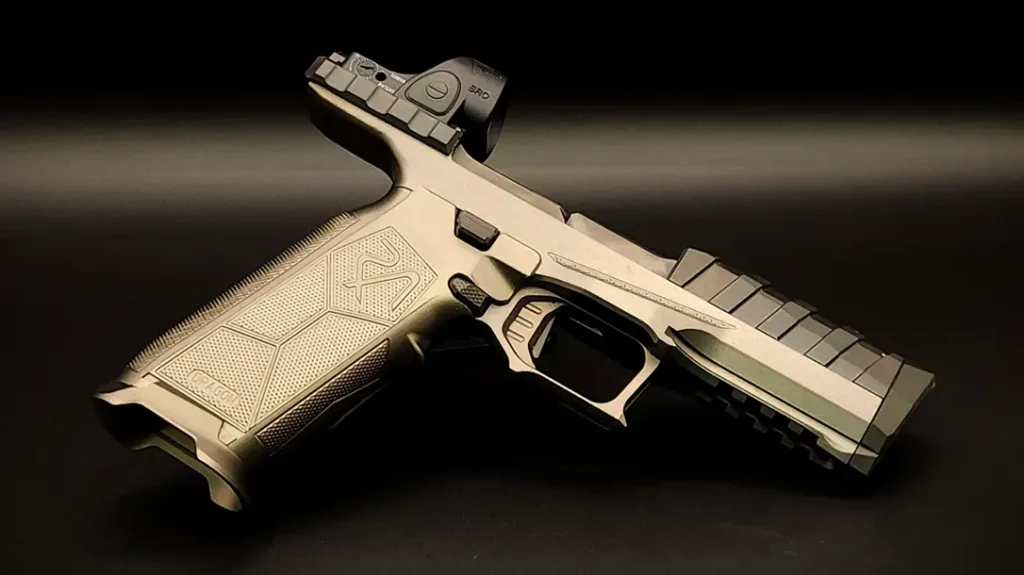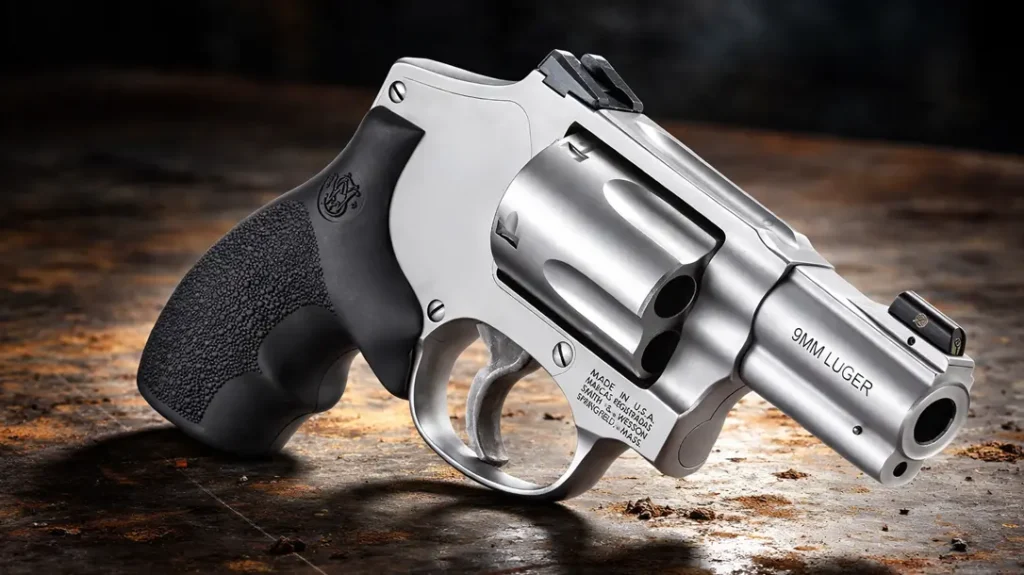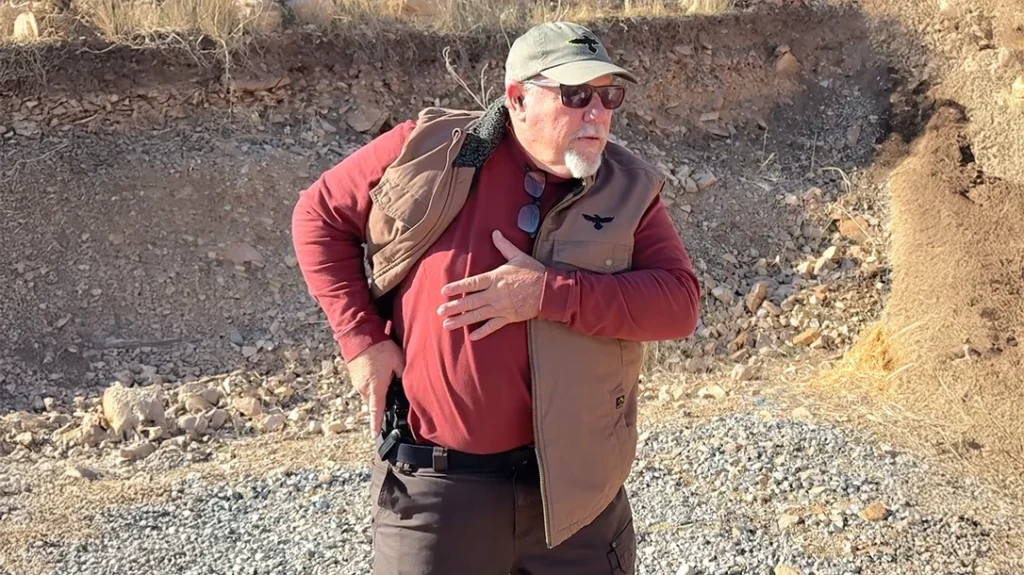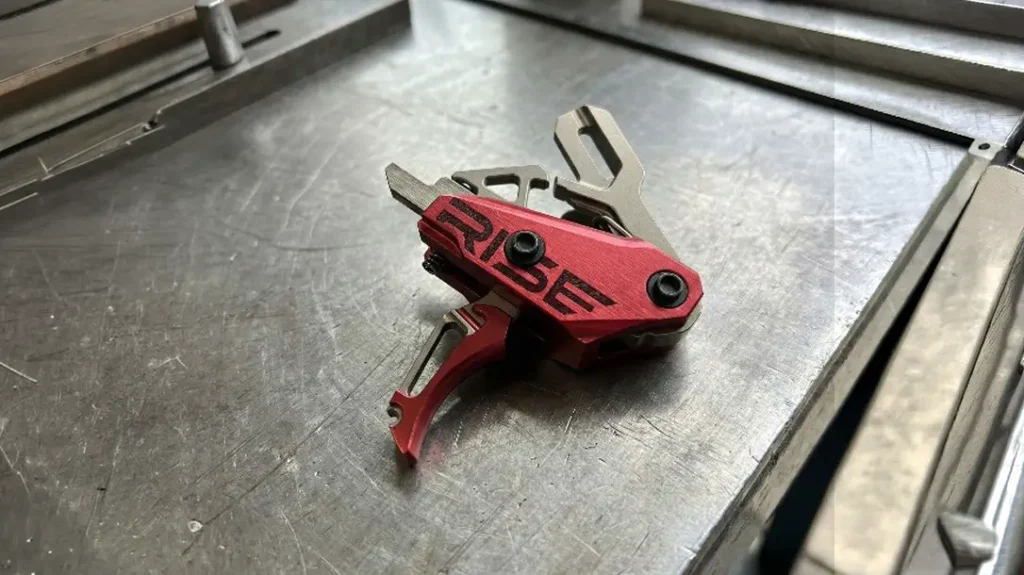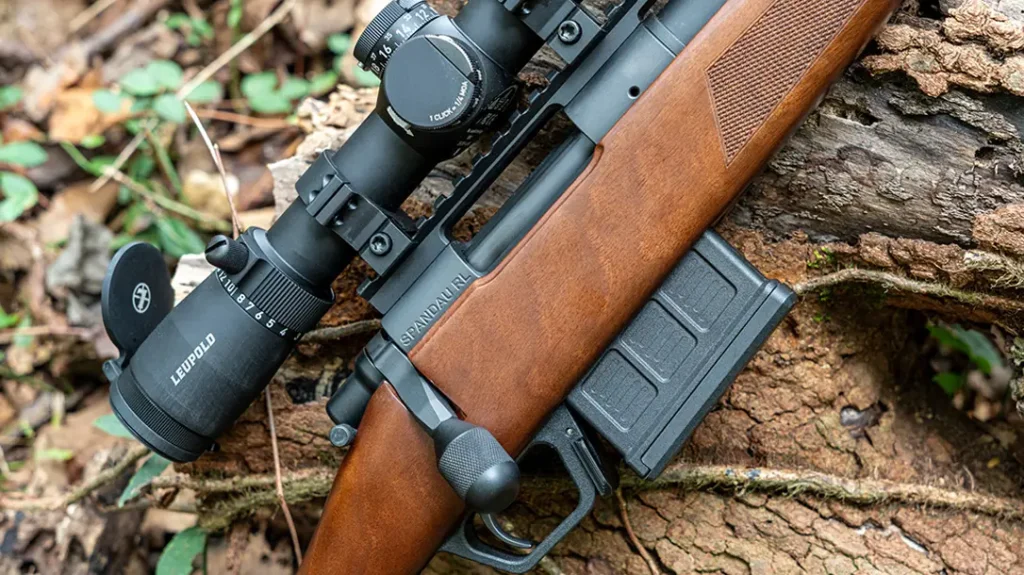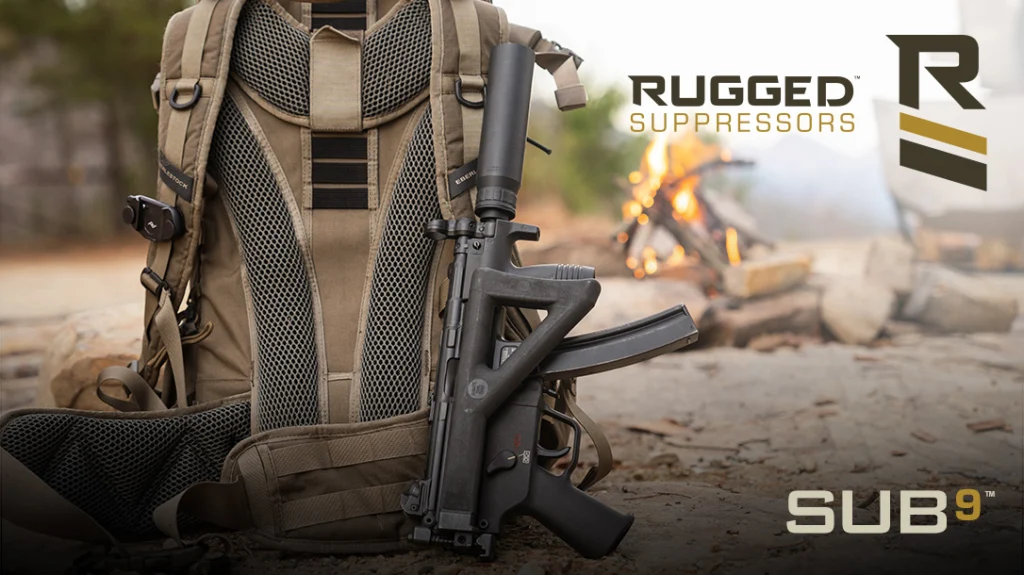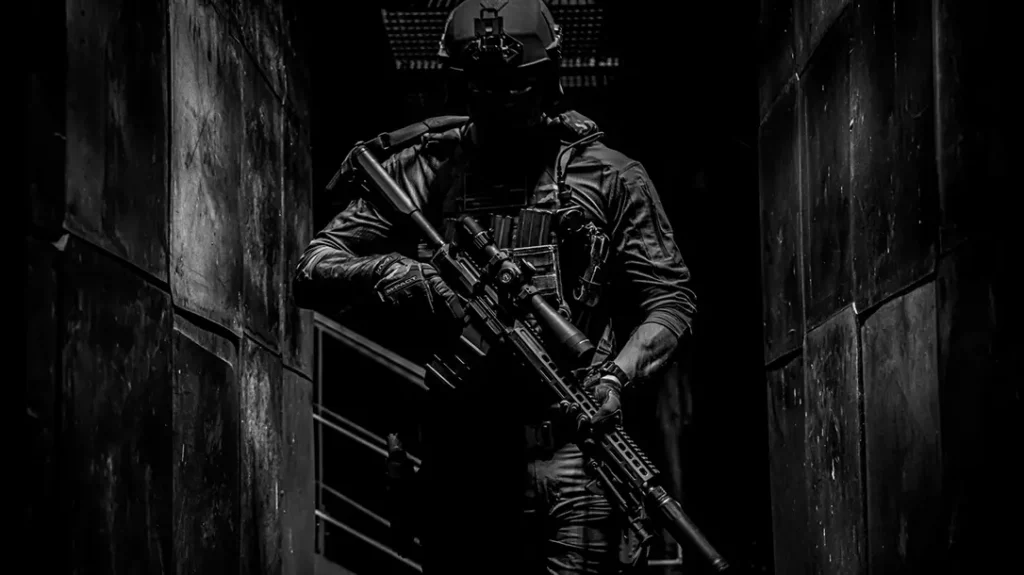Some of today’s handguns come to us from engineering farms or giant corporations modeling to produce what they can make inexpensively or think consumers want. What if we let a soldier design a handgun from the ground up? What features would be incorporated? Would it be a hearty tank of a lead-thrower with ultimate reliability? Or would it be something more elegant—a longsword for the 21st century? The Grand Power Q100 in 9mm addresses that question.
The Grand Power Q100 9mm
A stubborn soldier with a dream started a company that now employs more than 100 people and produces world-class pistols. Grand Power started out as sketches and grew through sheer force of will and a refusal to give up.
Many of these features—a steel internal chassis, a rotating barrel, four interchangeable backstraps, and full, truly ambidextrous controls—are just coming into fashion in the U.S. But Grand Power has been working with all of them since 2012.
Advertisement — Continue Reading Below
As a bonus, Grand Power chambers firearms in the six most common calibers in the U.S.—.22 LR, .380 ACP, 9mm, .40 S&W, .45 ACP and 10mm.
First Look
My exposure to Grand Power began with the X-Calibur, its flagship model. Immediately identifiable by the deeply fluted 5-inch bull barrel and scalloped slide, the X-Calibur is a marksman’s dream in hand. The 7-inch sight radius makes for an easy point. The fiber-optic front sight contrasts strongly against the matte and serrated adjustable rear.
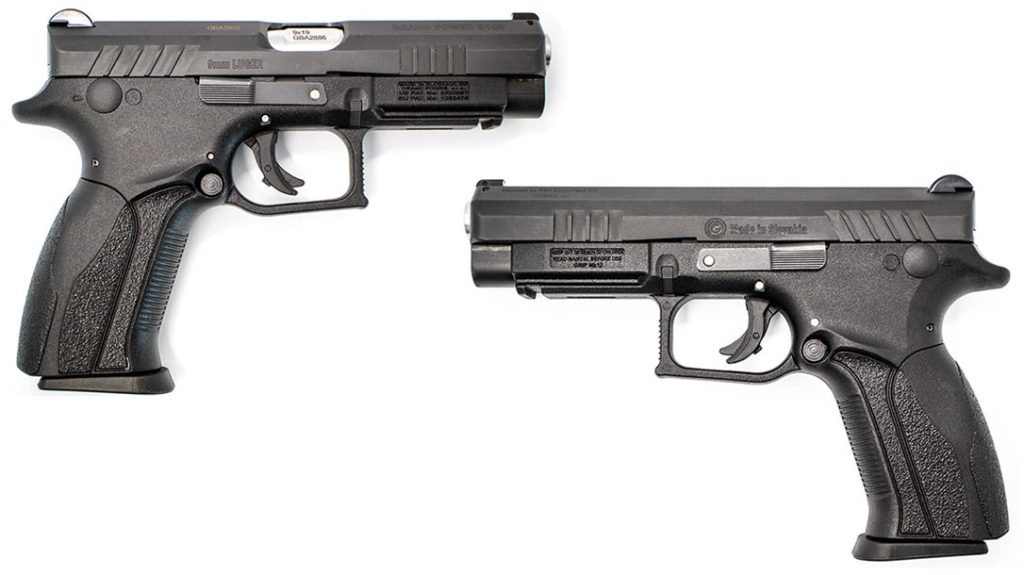
Advertisement — Continue Reading Below
As fun as such a target gun can be, it’s a bit large to be tactical. So, what kind of pistol does a former soldier design for fighting?
Running on a dream, the Grand Power pistols came to be excellent matches for any department or military. Specifically, a pistol to fit nearly every hand regardless of left or right. Likewise, a pistol that decreases recoil by addressing a source of perceived recoil. Finally, a pistol that performs with precision.
True ambidexterity is much more than a magazine release that can be swapped. All controls are on both sides of the gun all the time—the slide lock, magazine release, and safety (or decocker on applicable models). Though uncommon, these aren’t the characteristics that set Grand Power pistols apart. The distinction is the rotating barrel.
Advertisement — Continue Reading Below
Doing It Right
Grand Power isn’t the first company to produce a pistol with a rotating barrel. However, it may be the first to get it right. Today’s market is dominated by the Browning locking system, because it works, and why stray from it? But if we all had that attitude, you’d be reading this in print, by oil lamp.
There are benefits to be had with a rotating barrel, but they come with a higher manufacturing cost. The intention of the trade is to reduce recoil and lower the bore axis.
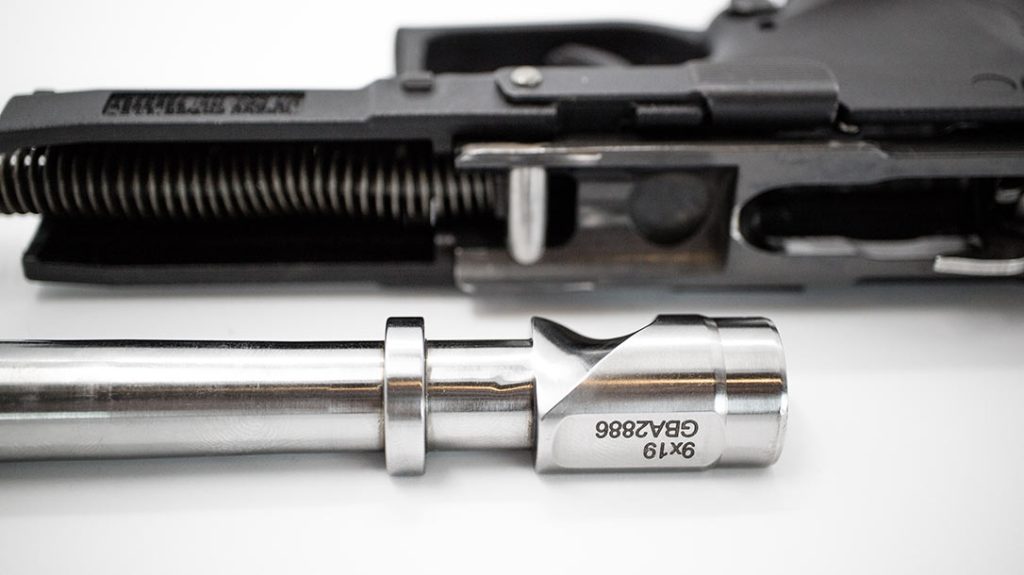
Advertisement — Continue Reading Below
It’s a curious question to ask if an action can impact perceived recoil. By rotating the barrel instead of tilting it, it must be mounted lower and closer to the round feeding from the magazine. This also moves the feed ramp from the barrel to the steel chassis where it can be as wide as the magazine.
For the shooter, this means less mass shifting after firing. This is one less abrupt mechanical stop jolting the firearm in hand. Not to mention an incredibly reliable feeding system that couldn’t care less what the projectile type is.
Recoil: A Comparison
The Browning system we’re all familiar with has some disadvantages in comparison. Perceived recoil comes from shifts in weight and the transfer of energy. With most locking systems, there is, of course, the rearward pressure of the fired cartridge. Then the barrel shifts rearward and downward. Finally, the slide reaches its most rearward point of travel.
Advertisement — Continue Reading Below
Slow-motion footage shows that, most often, it’s the slide’s movement that causes our perception of recoil. The round firing and the slide moving are prerequisites of a functioning repeating pistol and cannot be avoided. What Grand Power has done is eliminate the step that could be altered by changing what had been shifts in barrel direction and movement.
As a result, Grand Power pistols are some of the smoothest-shooting handguns I’ve encountered. Recoil is transferred straight back instead of back and down and then back some more, as in the Browning system.
Handling the Q100
Takedown procedures are a little different from the norm but certainly not impossible. While pulling down on the takedown lever, the slide is pulled rearward and then lifted off the rails. Just like with any procedure, it takes some practice to refine. The motion is reminiscent of the Walther PPK or Makarov design.
Advertisement — Continue Reading Below
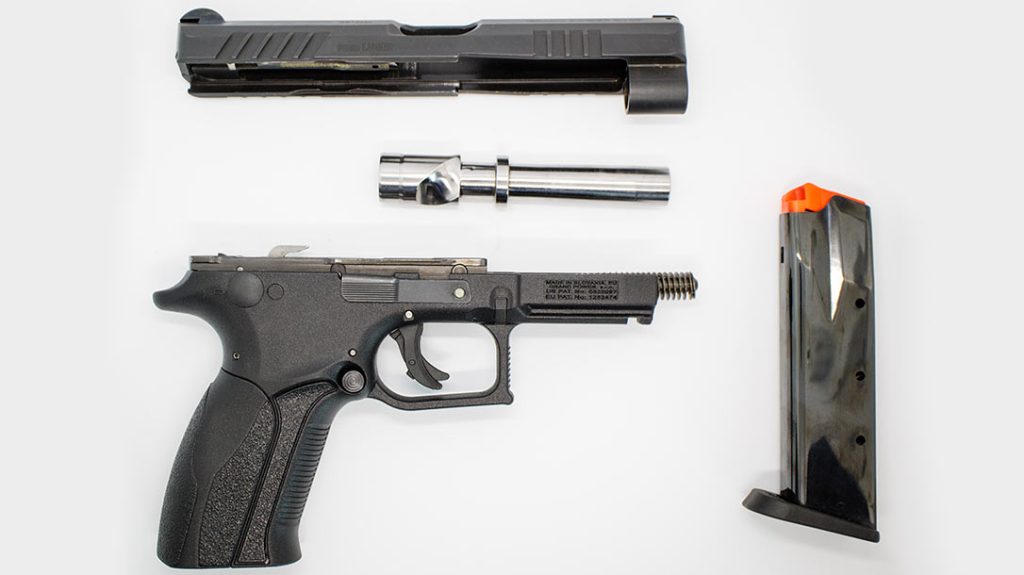
Though Grand Power pistols are available in both hammer- and striker-fired options, the trigger feel of the hammer-fired models is exceptional. A short take-up comes to a clean wall, followed by a crisp break. The reset is faintly tactile but very audible.
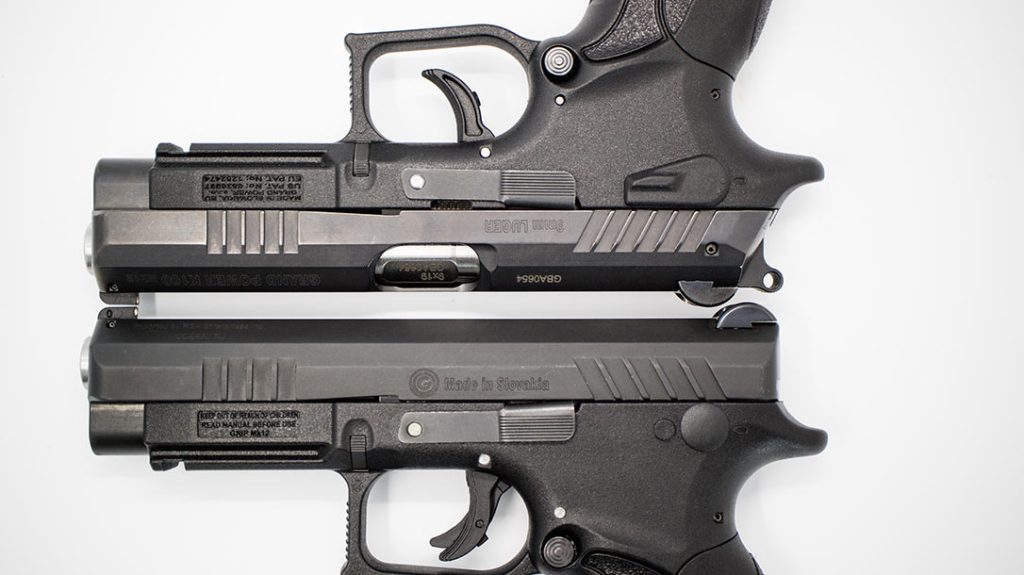
Advertisement — Continue Reading Below
One might assert that trigger feel rivals everyone’s favorite 1911. That statement is sure to ruffle some feathers, but until you’ve tried one of Grand Power’s pistols, it’s best not to argue. A subtle peak on the shoe makes for easy muscle memory and proper positioning of the finger.
Q100 Details
Do you prefer a traditional double-action/single-action with a safety? DA/SA with a decocker? Grand Power has options. For those who prefer striker-fired pistols, the Q100 is a nice addition to the family and offers more than just striker-fired reliability.
With the external hammer eliminated, the top of the slide naturally could be a little longer. As a result, the Grand Power 9mm Q100 has a longer sight radius than its K100 cousin. Operator-level safeties have been reduced to a dongle in the trigger shoe, as we’ve all become accustomed to, thanks to Glock.
Advertisement — Continue Reading Below
In keeping with the feel of the hammer-fired models, the trigger feels light and smooth and has a relatively short travel. This is not a trigger for first-time gun buyers; rather, it’s a trigger for those who will take the time to learn it.
My sample is an early production model and has almost no perceivable wall. This makes nearly every shot a surprise unless I’m shooting from the reset. As a result, staging a shot is difficult, but so is anticipating the shot.
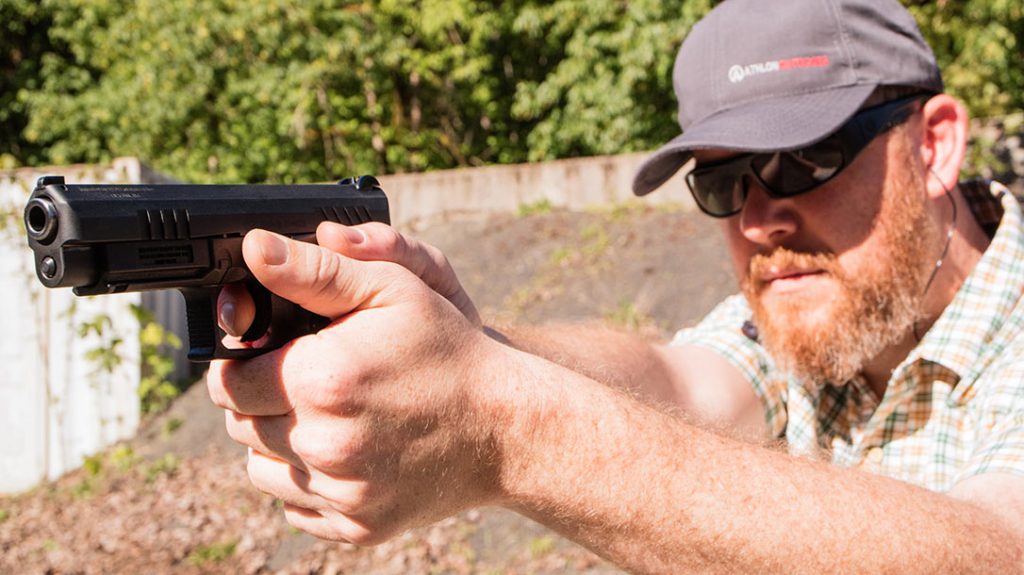
While trigger time is stupendous, this is not a fluff piece. Just like with automobiles, high performance requires attentive maintenance and a steady diet of quality fuel. Lubrication and cleanliness result in excellent performance, but a dry and dirty gun can be problematic.
This blessing and curse come from tight tolerances. While the ubiquitous Glock requires little attention or trigger skill, the Grand Power is a tool one must know and care for. Returning to our original question, the Grand Power is a handgun the soldier would clean and tend to prior to every mission.
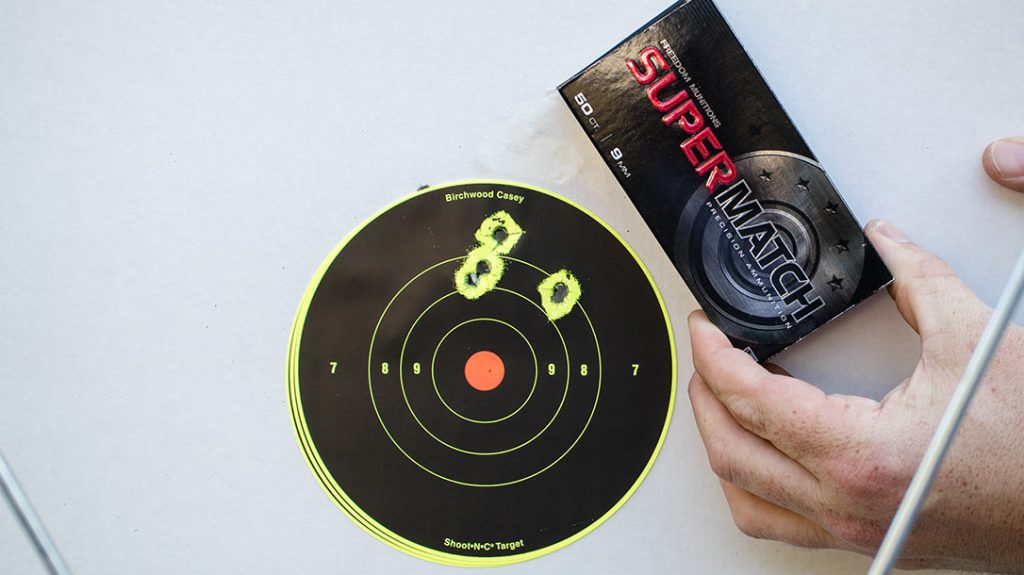
Pride In Quality
The pistols are built in an ISO 9001 facility using the most modern techniques and finished by hand with old-world craftsmanship. The slide and frame of each gun are both milled from a single piece of steel. Not a single cast part is used in construction, and you can definitely tell.
Every piece feels solid and engineered, a refreshing change from the parts-bucket feel so many handguns have these days as manufacturers race each other to make the cheapest guns possible.
Each pistol is assembled by hand by an armorer. That same armorer who assembles the pistol places his or her personal stamp on the gun as it is finished. This is another refreshing change from the typical mass-produced lots, which may or may not have been properly built. While a problem with other manufacturers may be honored by a warranty, each Grand Power is permanently linked to the craftsman who built it.
Grand Power reassures skeptics by providing a lifetime service contract to the original purchaser of the pistol. The warranty and service contract, of course, have the normal restrictions implying that the owner must responsibly use the gun. And with a gun like this, designed and built with a soldier in mind, responsibility is infused every step of the way.
For more information, please visit GrandPowerUSA.com.
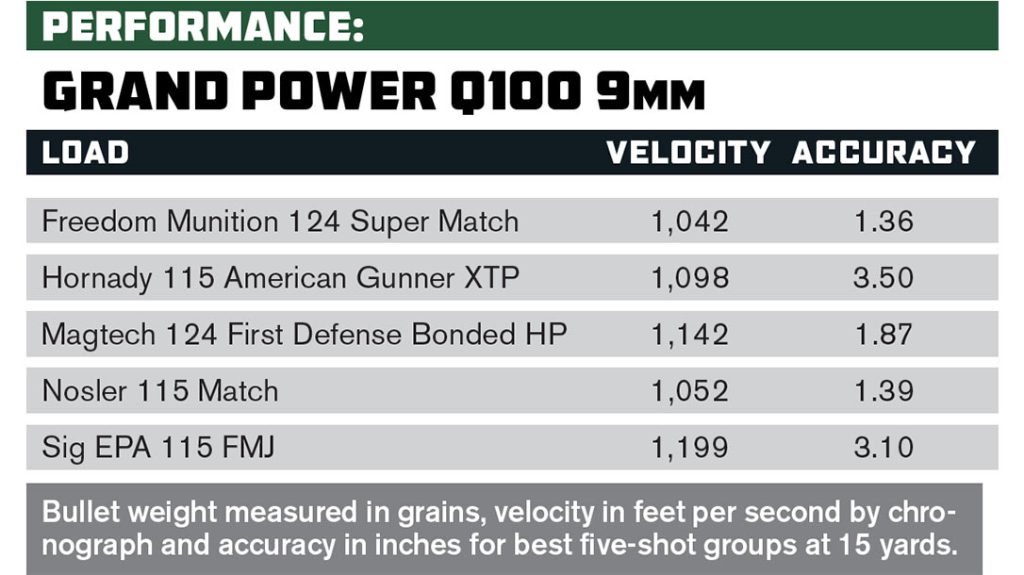
Grand Power Q100 9mm
Caliber: 9mm
Barrel: 4.3 inches
Overall Length: 8 inches
Weight: 26.1 ounces (empty)
Grips: Polymer
Sights: Plastic front, drift-adjustable steel rear
Action: Striker DAO
Finish: Black
Capacity: 15+1
MSRP: N/A
This article was originally published in the Combat Handguns March/April 2022 issue. Subscription is available in print and digital editions at OutdoorGroupStore.com. Or call 1-800-284-5668, or email subscriptions@athlonmediagroup.com.
